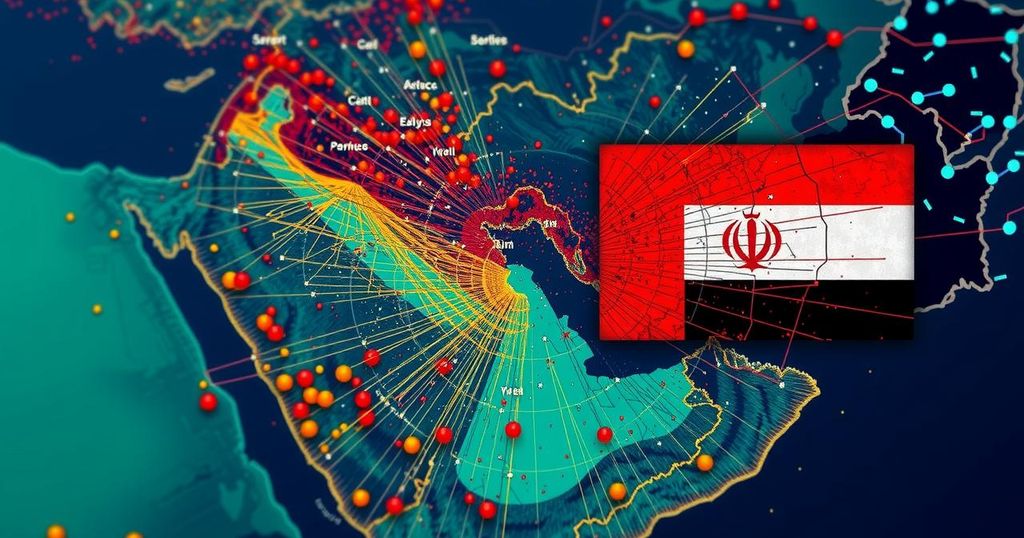Hassan Nasrallah, leader of Hezbollah, has been killed in an Israeli airstrike, raising concerns about the future of Hezbollah and Israeli strategies toward Iran. Prime Minister Netanyahu has taken a firm stance against a ceasefire, signaling potential shifts in military tactics across multiple fronts. Experts and analysts, including Rohan Gunaratna, are examining the implications of this event on regional stability and security dynamics.
In a dramatic escalation in regional tensions, Hassan Nasrallah, the leader of Hezbollah, was reportedly killed by Israeli forces in a precision airstrike utilizing advanced bunker-busting munitions. This event represents a significant setback for Hezbollah, an entity heavily supported by Iran, and poses critical questions about Israel’s forthcoming strategies, particularly concerning Iran itself. Israeli Prime Minister Benjamin Netanyahu has reaffirmed his uncompromising approach towards a ceasefire, issuing direct warnings to Tehran in response to the ongoing conflict. The demise of Nasrallah may catalyze shifts in operational strategies as Israeli military actions intensify against Hezbollah, who has been embroiled in conflicts across multiple fronts, notably in Gaza and the West Bank. Experts, including Rohan Gunaratna, are closely analyzing the shifting power dynamics in the region as Israel grapples with the implications of its actions against multiple adversaries, including the Houthis in Yemen. This situation necessitates a keen examination of the broader ramifications for regional security as well as global economic markets. The expansion of Israel’s military confrontations calls for a deeper understanding of the evolving geopolitical landscape, characterized by increased unrest and strategic calculations from all involved parties. The potential repercussions of Nasrallah’s death reverberate not only across Lebanon but could also resonate throughout the broader Middle East, warranting vigilant observation and strategic foresight from international stakeholders.
The recent death of Hassan Nasrallah represents a pivotal moment in the ongoing confrontations between Israel and various militant groups supported by Iran, especially Hezbollah. This situation is compounded by the fact that regional instability has broader implications, influencing global politics and economics. The context of US involvement and its waning status as a global superpower further complicates these developments, necessitating an analysis of both local and international repercussions of these conflicts. Understanding the dynamics at play is crucial for anticipating future events and their potential impact on stability in the Middle East.
In summary, the assassination of Hezbollah leader Hassan Nasrallah by Israeli forces significantly alters the landscape of regional conflicts. This event not only raises questions about Israel’s military strategies moving forward but also about Iran’s response and the geopolitical implications that may arise from this escalation. Observers and experts alike must now assess the broader ramifications for regional security, particularly concerning the interconnected conflicts involving Gaza, the West Bank, and Yemen.
Original Source: www.indiatoday.in






